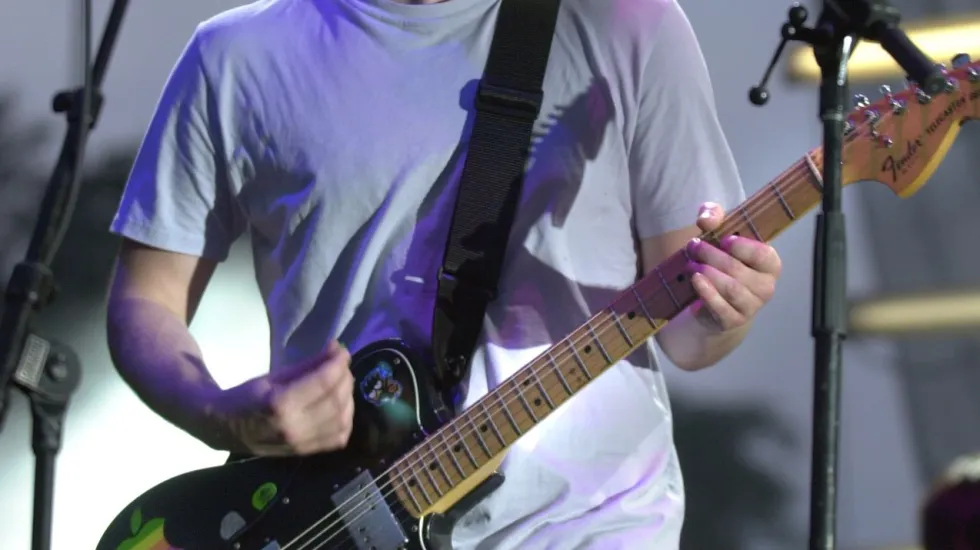
Over 50 years, Chicago’s Jam Productions has put on more than 39,000 shows. To mark its 50th anniversary, co-founder Jerry Mickelson picked a few of the more notable ones.:
ROLLING STONES
July 8, 1978, Soldier Field
“For Jam, this was a monumental moment because it was the first time we worked with the Stones, and they were the biggest rock ’n’ roll band in the world,” Mickelson says. “And for them to have the faith in us to pull it off was a big medal of honor.”
The band’s manager also had a special request.
“I had to arrange for a Chicago Fire Department fire engine to take the manager of the Stones and his friends from a downtown hotel to Soldier Field,” Mickelson says. “It’s what he wanted. A grand entrance. Not for the fans but for the band and everyone backstage to see. He was that kind of guy. So I worked with the fire and police departments and made it happen.
“We’re in a business where we’re not selling shoes. You’re dealing with personalities. You just roll with it. What are you supposed to do?”
ROLLING STONES
Sept. 18, 1997, the Double Door
Nearly 20 years later, the Stones played a surprise show at the small Wicker Park venue to an audience of fewer than 500 people.
Jam has a history not only of booking mega bands at big venues like Soldier Field but also smaller, more intimate spaces. Much of the time, that smaller space was the Uptown Theater, where acts including Bruce Springsteen and the E Street Band, the Grateful Dead and Genesis performed.

RADIOHEAD
Aug. 1, 2001, Hutchinson Field, Grant Park
“That show at Hutchinson Field might come as close to transcendent as it gets,” Mickelson says. “The night was legendary among fans.”
It drew 25,000 people and was the first time a band was allowed to play at Hutchinson Field along the lakefront. It showed the viability of the space and paved the way for events including Lollapalooza, according to Mickelson.
On that clear night, fans stood on softball fields to listen to the music with Lake Michigan and downtown’s skyscrapers as a backdrop.
SUPERTRAMP
April 20, 1975, Riviera Theatre
“That was the first contemporary show at the Riviera. Prior to that, it was only movies,” says Mickelson, who duplicated that feat months later at the nearby Uptown Theater.
The list of buildings Jam introduced music also has included the former Rosemont Horizon (now Allstate Arena), UIC Pavilion and the United Center.
“Those are all what I call opening shows,” Mickelson says, “first shows that blazed a trail.”
AEROSMITH
July 15, 1984, Prairie Capital Convention Center, Springfield
“Lead singer Steven Tyler fell off the front of the stage. He wasn’t hurt, but when he crawled up and got back on stage the band members dropped their instruments and actually, in front of everybody, beat him up. They’d had enough of him. They were pissed that he was so out of it at the beginning of a show. I think that wasn’t the first time they’d had issues with Steven being messed up on stage. We had to cancel it right there after a few songs. Thankfully we were able to reschedule the show for another date.”
JEFF BECK
July 10, 1976, Comiskey Park
Jeff Beck opened for Aerosmith that night.
“We produced the first show at Comiskey since the Beatles, and a fire started on the roof during Jeff Beck’s set, and thick smoke began to fill the air. We stopped the show and had a DJ named Mitch Michaels from The Loop get on stage to keep the audience calm.
“The Chicago Fire Department tells Bill Veeck, owner of the White Sox at the time, that he should evacuate the park. And Veeck said, ‘I am not going to evacuate. More people will get injured if we do that. Go do your jobs, and put out the fire.’ ”
Told he would be arrested, Mickelson says Veeck said, “Just put out the fire.”
“I was standing right there during the exchange,” Mickelson says. “It was incredible. And everyone remained in place, and they put out the fire, and we started the show again after the delay.”
PEARL JAM
July 11, 1995, Soldier Field
“It was almost like a religious experience,” Mickelson says. “It was just a beautiful night. The band was in fine form, and people were just going nuts.”
Lead singer Eddie Vedder, a Cubs fan with Chicago roots, destroyed his guitar on stage during the nearly three-hour set.
“It was the first time they stepped up and sold out a stadium.”
GRATEFUL DEAD
July 21, 1990, World Music Theatre, Tinley Park
That Saturday night, some Deadheads stuck in traffic abandoned their cars on Interstate 80, snarling traffic until tow trucks could clear things.
“So many people showed up without tickets, and they just left their cars on I-80 and shut it down,” Mickelson says. “It was a mess. And they all came and tried to get in the show, which they didn’t. The next night, we had more than ample traffic control and help from police.
“Later, we realized the World was too small for them, so we moved them to Soldier Field.”
Jerry Garcia played his last show with the Grateful Dead at Soldier Field in the summer of 1995. He died weeks later.
“There’s a peace-loving, beautiful, warm vibe with 70,000 people having a great time at a Dead show,” Mickelson says.







